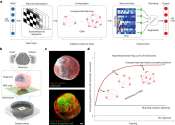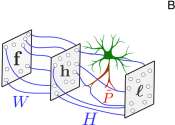Researchers fabricate logic gates based on neuristors made of 2D materials
Individual neurons in the human brain can efficiently perform so-called Boolean operations; a type of algebraic operations that include union, subtraction and intersection. Computing systems that emulate biological neurons, ...









